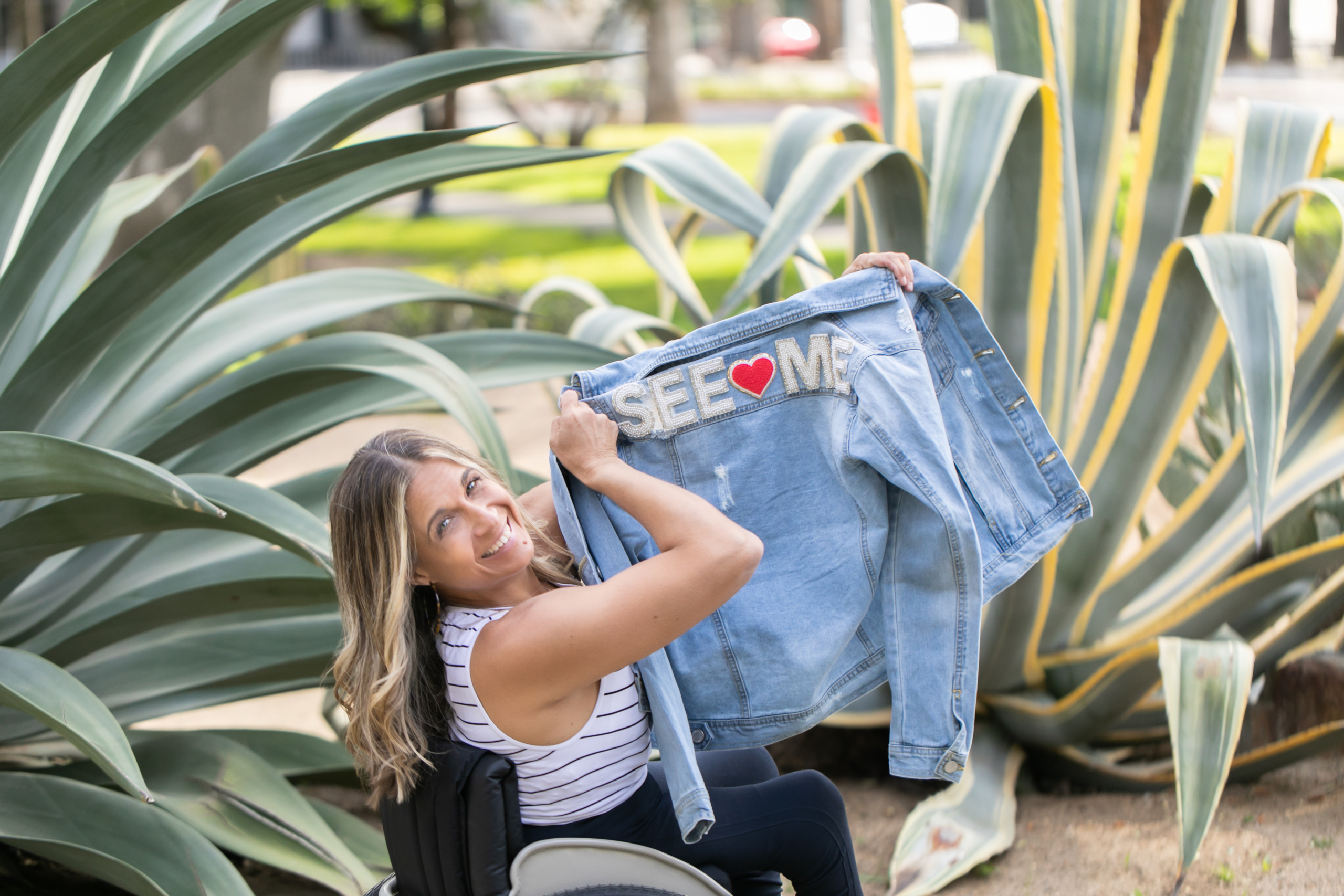5 Questions with Alumna and Motivational Speaker Alycia Anderson

Alycia Anderson (Physical Education, ’05) is a tennis player, cyclist, and identical twin. She also was born with sacral agenesis, a congenital disability affecting her spine, and has used a wheelchair all her life. After a successful career in technology sales, she recently decided it was time to pursue a more personal passion—inspiring people to believe in their limitless potential. Now working as a full-time motivational speaker and corporate inclusion coach and mentor, she gave her first TEDx talk in 2021—Disabling Ableism: The Modern Pathway to Inclusion. With heart and humor, Anderson uses her own story of learning to love and celebrate her disability to show how social prejudice or discrimination that favors individuals with a perceived “ability” over someone with a “disability” undermines efforts to create a more diverse and inclusive society.
What did it take for you to learn to love your disability?
Truly, it is just who I am. I didn’t have a say in what form of life I would receive on Earth. Just like everyone else, I had to discover things about myself over time, through life experience and maturation. Although it is and has always been my normal, I know that I am different from most everybody else because of it. Approaching life with this philosophy changes the question to something more like, “What did it take for you to love yourself as you are?” Life is challenging, it can bring hardships and adversities for all of us. I have come to find that these challenges are also life’s biggest opportunities for growth. My disability is my superpower. It’s given me a very interesting life, full of peaks and valleys, a life that I would never exchange for another. It defines me in some respects, as it determines what mobility means to me, and it shapes my definition of what healthy is.
Were there any classes or faculty at Chico State that helped you embrace your identity and talents?
Yes! There was one person who was integral in getting me to where I am today. Rebecca Lytle, a professor in the Department of Kinesiology, took me under her wing and encouraged me to sign up for the Adapted Physical Education program. What I didn’t realize at the time is that I would have to complete the physical education program in tandem with the APE portion. I was forced to face very deep-seated insecurities about myself, which led to the greatest inclusion challenges I had faced to that point in my life. Tasks like fitting in with my classmates as we would scale the rock climbing wall or chase each other on the soccer field—and even the task to deliver a lesson to 6th-grade students on how to punt a football—all had brought me to the edge of my comfort zones. I would find myself in Dr. Lytle’s office in tears, feeling like I didn’t fit in or feeling defeated and embarrassed. This is something that only she and I shared, and through each tear, she would challenge me to adapt, to show other students what is possible. She told me once, “Alycia, you’re like a butterfly in her cocoon, ready to fly.” Dr. Lytle was the first person to suggest I share my journey, and she gave me my first big opportunity to speak on a large stage. The rest is history.
What advice would you give today’s students?
Go for it. Start chipping away at whatever you dream of most and forge the pathway of possibility toward it. I waited for years to start working toward my dreams and aspirations, falling prey to self-inflicted impostor syndrome everywhere I turned. For too long, I told myself, “You need to be more educated. You need to reach higher heights in your career. You haven’t accomplished enough to be credible.” All of these were excuses. Look for areas of opportunity, and surround yourself with people who believe in you. This is how the magic is created!
Why are coaching and mentoring important or meaningful to you?
There have been so many mentors in my life that have planted seeds along the way, giving me courage and the ability to overcome hardship. They gave me the gift of belief, the belief that anything is possible, no matter how steep the challenges. I touch on this in my speeches all the time. I believe that we show each other how to make things work in our lives and that our actions widen the doors of possibility for those that follow us.
How can we be more inclusive in our everyday lives?
To be successful in our efforts, we must realize this is collective, ongoing, hard work. It’s not something for you to figure out in a manual and it’s not up to me to guide you. It’s work that we do together. It takes willingness to engage with someone or a situation we are unfamiliar with. We must be bold and ask hard questions, and give honest answers in return. And it takes forgiving each other when mistakes are made, because through our mistakes we are learning. I have found that inclusion is like a dance. It takes trust, vulnerability, and a whole lot of practice. Inclusion starts when we are willing to try, like my dad taught me as a little girl: “Do the best you can with what you have been given, and smile.” A lesson I’ve shortened down to simply “See me for me.”


